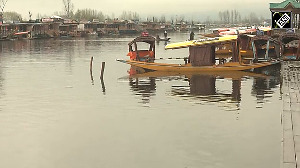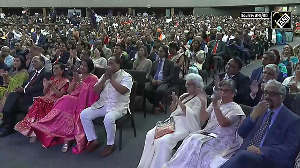The 13th Legislative Assembly in Karnataka is all set to take charge of the affairs of the state in a few days. After being under the President's rule for a long time, Karnataka will finally have a popular government in place.
There are certain interesting facts about the 13th Legislative Assembly in Karnataka which will be dominated once again by the Lingayats and Vokkaligas, with 59 and 51 legislators respectively. Members of the Scheduled Castes and Scheduled Tribes will have 50 seats while the Brahmins will have 11.
The parties may say that the elections were not based on caste equations, but statistics say that it was a battle between the Lingayats and the Vokkaligas.
While Yeddyurappa was being portrayed as the Lingayat leader, H D Kumaraswamy was the leader for the Vokkaligas.
The Congress too roped in S M Krishna at the last minute, as he is a popular leader from Bangalore, which has a crucial 28 assembly seats, and belongs to the Vokkaliga community.
The distribution of tickets among candidates from the two communities is an indication of how closely the caste battle was fought. The Bharatiya Janata Party fielded 71 Lingayats, out of which 38 won the elections. The Congress and the Janata Dal Secular fielded 46 and 50 Lingayats respectively, of which 19 and 4 candidates won.
On the Vokkaliga front, the BJP fielded 42 candidates, out which 17 won. The JD-S fielded 57 Vokkaligas, out of which 15 won the elections. The Congress, on the other hand, fielded 37 Vokkaliga candidates, of which only 19 managed to win the elections.
The Lingayats and the Vokkaligas continue to be the dominating castes, with as many as 110 seats in the 224-member Karnataka Legislative Assembly. The rest of the 114 seats in the Karnataka Legislative Assembly are shared by the SC/STs (50), Brahmins (11), Muslims (8), Christians (1) and Other Backward Classes (15).
The rest of the seats are shared by members of various communities like Vysyas, Kurubas, Kabbaligas, Idigas, Marathas, Jains , Devadiga , Uppara and Tigala.
The Lingayats and the Vokkaligas together constitute only 26 per cent of the state's population. According to the Report of the Backward Classes Commission, the two communities have been dominant in Karnataka since 1956.
Even the job scenario in the state is dominated by these two castes, with the Lingayats and Vokkaligas holding 17 and 13 per cent of total jobs respectively.
The percentage of land held by the Lingayats and the Vokkaligas are 27 and 28 per cent respectively, the report states.






 © 2025
© 2025